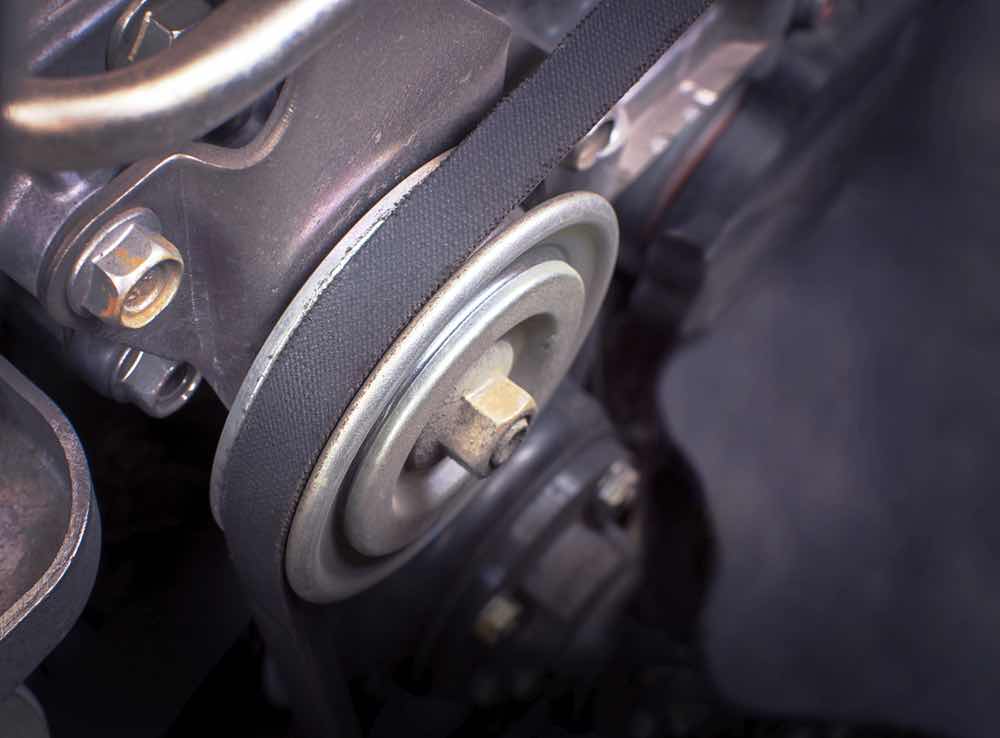What’s the Difference Between Timing Belts & Timing Chains?
- Timing belts are made of rubber and need to be replaced every 55,000-90,000 miles.
- Timing chains are made of metal and can last as long as the vehicle itself.

Your vehicle will either have a timing belt or a timing chain to keep the engine’s timings in order, which in turn keeps your vehicle running safely and efficiently. But why is it only one or the other, and what is the difference between the two? The team at Mr Tyre are here to tell you all you need to know.
What is the difference between timing belts and timing chains?
Both timing belts and timing chains are essential parts of your car’s internal combustion engine, and play a part in controlling the crankshaft and the camshafts, which in turn ensure that the engine valves open and close at the correct time. The main difference lies in the materials used – timing belts are made of rubber composite, whereas timing chains are made of metal.
Why do cars have one and not the other?
Where a quiet, more efficient engine is required, a timing belt is often preferred. As they are made from rubber, they’re also cheaper to manufacture, which means that car manufacturers may choose to build them into the vehicle. A quieter engine is often more appealing to buyers, so the timing belt is installed to ensure a smoother sound.
The longer lifespan of a timing chain is why they are chosen over timing belts – they very rarely break, but any problems that do arise are easy to catch before they reach the point of no return. For example, a worn chain will start to rattle noisily, which gives you a heads up that something is wrong, whereas a timing belt can snap without warning.
What is the lifespan of timing belts and timing chains?
Timing chains generally have a longer lifespan than timing belts. The reason for this is quite simple: chains are made from metal, whilst timing belts are made from rubber, which simply isn’t as strong. That isn’t to say timing belts are weak, but they will likely need replacing at some point, whereas a chain can last as long as the vehicle itself does.
To put a figure on it, timing belts usually need replacing somewhere between the 55,000 miles (approx 90,000km) and 90,000miles (approx 150,000km) mark. So, a timing belt is still an extremely reliable and important part of your vehicle.
Whether your vehicle has a timing belt or a timing chain, it’s important that you pay attention to any signs of wear and tear and act accordingly. Depending on your engine type, if your timing belt breaks, the consequences can be catastrophic – the repairs can be so costly as to be unfeasible, which in certain instances can mean you are better off looking to buy a new car!
What is the average cost of timing belts and timing chains?
To replace a broken timing belt, the engineer will need to remove a number of components, which adds to the labour costs of the job. The average cost of replacing a timing belt is around £300.
The average cost of replacing a timing chain is between £500 and £1,300. You won’t have to replace your timing chain as often, if at all, but the cost of doing so is more than offset by the long lifespan of the component. The chain itself will cost around £180; the majority of the expense is paying for labour.
Whether you have a timing belt or a timing chain in your vehicle, it’s important to ensure they are in the best condition in order to keep your vehicle safe and roadworthy and avoid any unwanted expenses. By being alert and proactive with regular vehicle servicing, you can minimise the risk of being caught out.
–
Mr Tyre has been providing our expert car maintenance services in Central England for over 50 years – tyre fitting, new clutches or an air con recharge for vehicles of any make, model and age, all carried out by our expert technicians. For a reliable vehicle inspection – including assessment of your timing belt or chain – contact your local branch and we’ll be happy to help.

